Teachers, refugees learn to ‘expect the unexpected’
April 30th, 2022 | SIT Graduate Institute
How SIT TESOL experts rallied to help Afghan refugees get settled in Vermont
By Beatriz C. Fantini
Experiential education has been at the core of all World Learning programs since the start of the organization in 1932. Whether it’s spending a summer abroad, attending a semester of studies in Peru, or participating in one of our graduate programs here in Vermont, the emphasis has always been on experiencing, participating, reflection, and discussion.
This same approach was evident in a recent training program for our new neighbors, a group of Afghan refugees.
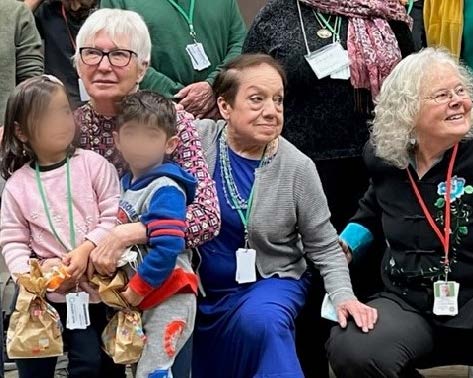
When it was announced that nearly 100 Afghan refugees were to arrive in Brattleboro, and that SIT and World Learning had partnered with the Ethiopian Community Development Council (ECDC) to help resettle them, a group of professors from SIT met to see how we could help to orient and prepare the refugees for life in the United States.
The group of three professors emeriti, two retired professors, and two current SIT faculty members began meeting in late November to develop plans to provide the refugees with English instruction and cultural orientation, two areas in which SIT has been engaged over many years.
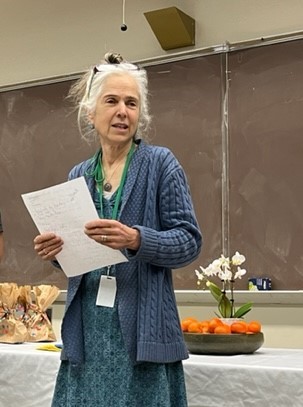
Being part of this group was the highlight of my retirement. In this new effort, I was going to work once again with five of my former students of decades ago, currently all professional educators, and one colleague. We were all enthusiastically engaged in this project and learning together once again as we worked through the process.
We decided to run a 10-week pilot project with the new arrivals to test our plan and, if ECDC agreed, we would then continue beyond that time. Our newly formed group met regularly until the holidays, and then resumed again in January. We learned that the refugees would begin arriving in Vermont in January, and the program began on January 24.
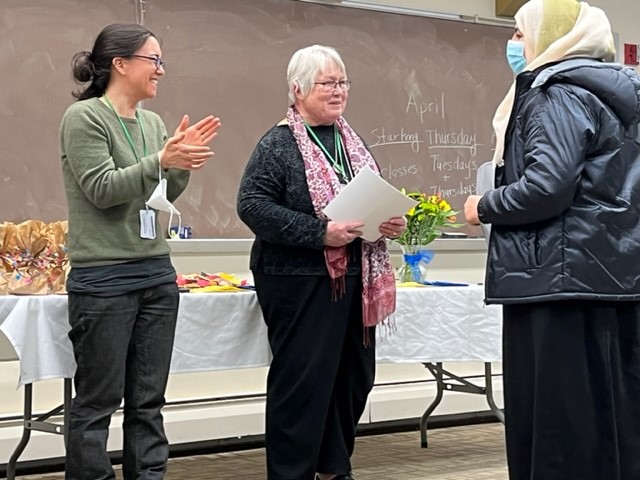
About two weeks before their arrival, we were told that the refugee families included children, some of whom would be arriving with both parents and some just their mothers. What to do? SIT never had a daycare center and our campus was not set up for children.
We established play centers in the back of the classrooms where parents would be learning. ... Based on our experience in the refugee camps of Southeast Asia, we felt confident this would work well, and we were not wrong.
The solution was to replicate classrooms like those we had established years before in Thailand, when we ran refugee camps there. We established play centers in the back of the classrooms where parents would be learning. To keep the children occupied and entertained, we created positions of “childminders” – volunteers who engaged the children in the room while the adults were in class. The volunteers who took on this role were a former child psychologist and former elementary school teachers. Based on our experience in the refugee camps of Southeast Asia, we felt confident this would work well, and we were not wrong.
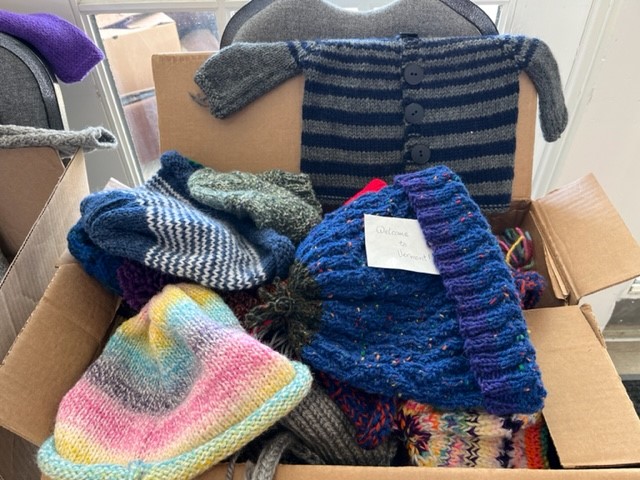
Recruiting teachers, however, was not an easy task. Although there are many graduates of the SIT TESOL program in the Brattleboro area, we did not know of their availability or whether they would be willing to volunteer to teach for 10 weeks without pay. Happily, we were able to engage enough individuals to teach the entire the group of 92 refugees, some of them children, at various levels of proficiency.
Throughout the entire experience, we were once again living the motto upon which The Experiment in International Living was founded 90 years ago: “Expect the unexpected.” As the program began, we still did not know how many students to expect or when. We had no advance information either about who they were: men, women, children, couples, ages. We also did not know their languages or language levels.
Throughout the entire experience, we were once again living the motto upon which The Experiment in International Living was founded 90 years ago: 'Expect the unexpected.'
The refugees were arriving from U.S. military bases, where they had been housed since their rapid evacuation from Afghanistan in August, so we assumed they had some knowledge of English. But without specific information, our plans had to be constantly revised.
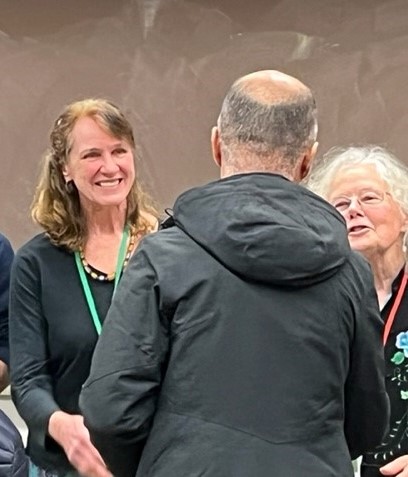
Meeting the students was indeed a linguistic challenge for them and for us! Several had good English proficiency, some knew limited English, others knew none at all. And to add to this challenge, several were not literate in their languages or had never been to school. For all our sessions, then, we relied on an interpreter and we used our Google Translate app.
Initially, most students were quite shy. Many had no idea where they were. Having been told they were going to a university, the rural SIT campus seemed to them more like a camp than a university setting. Classes were held Tuesdays through Thursdays for two hours each day. On Mondays, they had a session on U.S. cultural orientation to give context to the language classes.
As the program began, we still did not know how many students to expect or when. We had no advance information either about who they were: men, women, children, couples, ages. We also did not know their languages or language levels.
For the first several weeks we did not know how many students would attend classes. Once we thought we had a stable number of students, a new couple might arrive and show up for class the next day. This became a frequent occurrence, but the teachers were able to integrate the new arrivals without much difficulty. Fortunately, the teachers were all experienced, they were all trained at SIT, including a former director of the TESOL program.
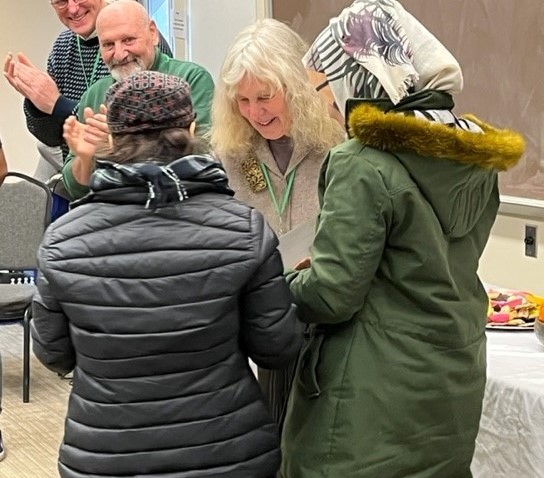
In the beginning, it was difficult for us to learn names that were unfamiliar to us, and masks did not help. Eventually, however, we began to remember names, who was married to whom, who was the parent to which child, and so forth. As the weeks went by, our new neighbors began to communicate better, to feel comfortable in their new surroundings, and they even began to refer to their dorms as “home.”
The challenges for our new neighbors will certainly continue for some time. Most of the refugees are now living in Brattleboro, Bennington, or Bellows Falls. They are now entrusted to the kindness and welcoming attitude of others in this area.
As time went on, some of the men started to miss class as they secured jobs in the area. Families began to move into town, and some of the children began to attend local schools.
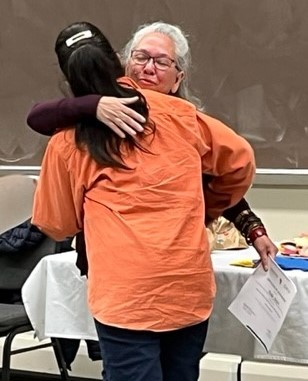
Although we have now finished this pilot project, the challenges for our new neighbors will certainly continue for some time. Most of the refugees are now living in Brattleboro, Bennington, or Bellows Falls. They are now entrusted to the kindness and welcoming attitude of others in this area.
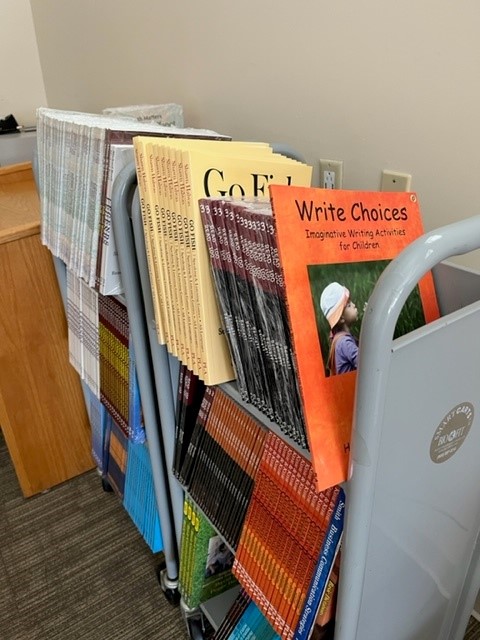
Although our volunteer group has finished its task, we still get together to reflect on the process and how we were challenged to use our skills and our imaginations to create a program and an experience with our Afghan friends for their new life here in Vermont.
Our deep and heartfelt thanks go to Jeryl, Jamie, Jeannie, Bill, Bonnie, Gloria, Kate, Ray, Andy, Jonathan, Lanie, and Jessie. You have given our new neighbors a good basis on which to feel more comfortable in this area and to keep learning English. And thanks also to Cheryl, Pam, and Nancy, the childminders. Without them, the adults would not have had an opportunity to participate.
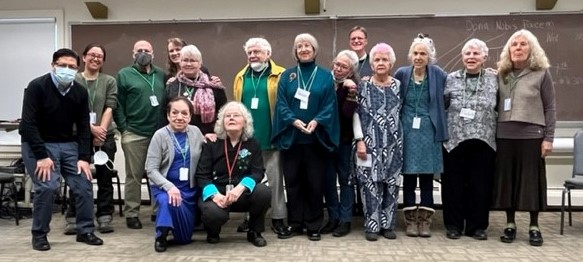
For us, the seamless team, the experience will remain in our minds and hearts for a long time. We hope we gave our new neighbors the tools they need to make Vermont their new home.
Beatriz Fantini is SIT professor emerita.
